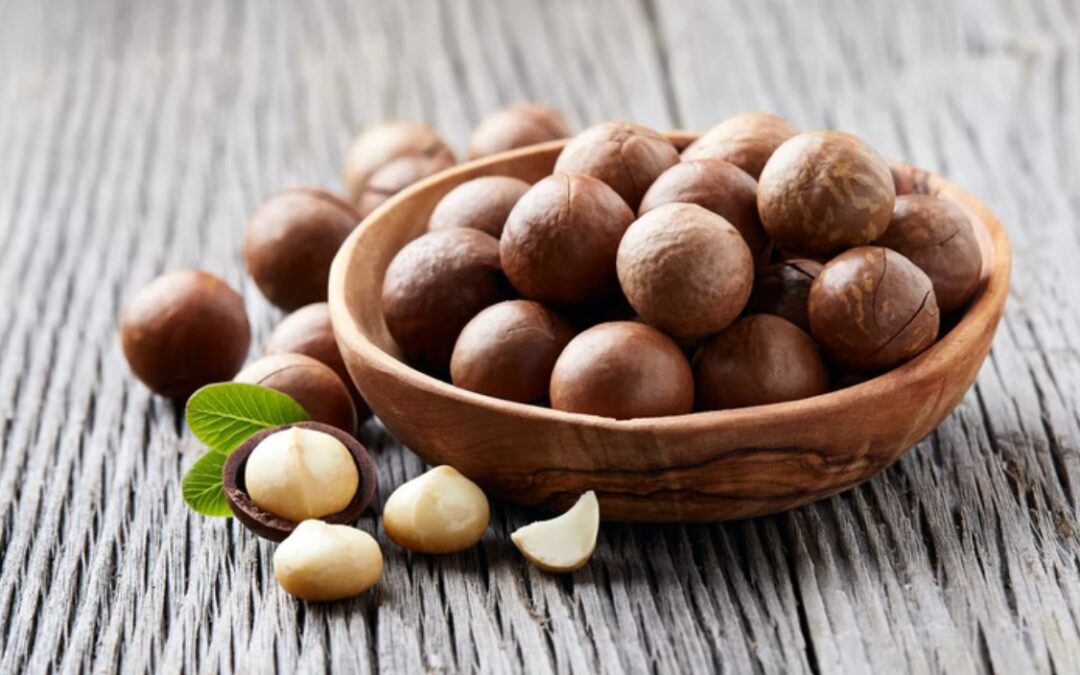In the world of agriculture, the efficient storage of crops can make a significant difference to a farm’s profitability. For macadamia farmers, this is especially true. Macadamia nuts, known for their high value and delicate nature, require careful handling and storage to maintain their quality and maximise their market value. One of the most effective solutions to this challenge is the use of poly silos. In this blog, we’ll explore the economic impact of poly silos on macadamia farms and how they can lead to increased profitability and sustainability.
Preserving Quality and Reducing Losses
Macadamia nuts are susceptible to spoilage and damage from moisture, pests, and temperature fluctuations. Traditional storage methods, such as open-air bins or basic sheds, often fail to provide the necessary protection against these elements. This is where poly silos come into play. Made from durable, UV- Stabilised polyethylene, these silos offer a sealed environment that protects the nuts from external factors that can cause spoilage.
By maintaining the quality of the nuts, poly silos help reduce post-harvest losses. Less spoilage means more of the harvested crop is available for sale, directly impacting the farm’s bottom line. In an industry where even a small percentage of loss can translate to significant financial setbacks, the use of poly silos can be a game-changer.
Enhancing Operational Efficiency
Efficiency is a key factor in agricultural profitability. The process of loading, storing, and unloading macadamia nuts needs to be streamlined to save time and labor costs. Poly silos are designed with features that enhance operational efficiency. Their conical bottoms facilitate easy and complete discharge of the stored nuts, minimising manual handling and reducing the time required for these operations.
Furthermore, poly silos can be equipped with automated systems for monitoring temperature and humidity, ensuring that the optimal storage conditions are maintained without constant human intervention. This automation reduces the labor needed for monitoring and managing the storage environment, allowing farm workers to focus on other essential tasks.
Cost-Effective Investment
While the initial investment in poly silos may be higher than some traditional storage methods, the long-term benefits often outweigh the costs. Poly silos are built to last, with materials that resist weathering and degradation over time. This durability means that the silos require less frequent replacement and maintenance, leading to cost savings in the long run.
Additionally, the ability to protect and preserve a higher percentage of the harvest translates to increased revenue. When farmers can sell a larger portion of their crop at premium quality, their return on investment in poly silos becomes evident. The improved storage conditions also mean that farmers can hold onto their nuts for longer periods, allowing them to take advantage of favorable market prices rather than being forced to sell quickly to avoid spoilage.
Market Advantage
High-quality macadamia nuts command higher prices in the market. By using poly silos, farmers can ensure that their nuts meet the stringent quality standards required by top buyers. This quality assurance can open doors to premium markets and long-term contracts with buyers who are willing to pay a premium for consistently high-quality products.
Moreover, the reputation of producing top-quality macadamia nuts can enhance a farm’s brand value and market position. In a competitive market, having a reliable storage solution like poly silos can be a distinguishing factor that sets a farm apart from its competitors.
Environmental and Sustainability Benefits
Sustainability is becoming increasingly important in agriculture. Poly silos contribute to sustainable farming practices by reducing waste and improving resource efficiency. By minimising post-harvest losses, farmers make better use of the resources invested in growing the crop, including water, fertilisers and labor.
Additionally, poly silos can be part of a more extensive sustainable farming strategy. Their durability means fewer replacements and less material waste over time. Some poly silos are also made from recyclable materials, further enhancing their environmental benefits.
The economic impact of poly silos on macadamia farms is multifaced, encompassing improved quality preservation, enhanced operational efficiency, cost-effective investment, market advantages, and sustainability benefits. For macadamia farmers looking to maximise their profitability and ensure the long-term success of their operations, investing in poly silos is a strategic move that can yield substantial returns.
By protecting their valuable harvest, reducing losses, and increasing efficiency, macadamia farmers can achieve better financial outcomes and position themselves for success in a competitive market. As the agricultural industry continues to evolve, innovative solutions like poly silos will play a crucial role in driving progress and profitability.
Follow us on Facebook and LinkedIn for the latest news and updates of products.
Related Products Poly Silos
Related Products Silo Tank
Related Products Cone Bottomed Tank

